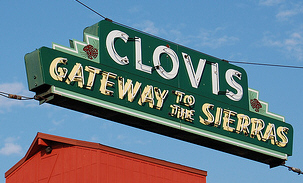
Just because some folks have decided to
shame themselves and their city by putting "Sierras" up in lights,
it's still not right.

I like to think that this issue was
settled many years ago:
The Spanish word sierra means "range of mountains," and is usually
found in combination with other
words,
such as Sierra Blanca (White Range), Sierra Madre (Mother Range, or Central
Range), and
Nevada
(Snowy Range). Occasionally las sierras is used to designate a group of
mountain ranges or
ridges.
In the Spanish narratives of exploration una sierra nevada is frequently
found written without
capital
initials, referring simply to a snow-covered range of mountains. It was in this
that our own Sierra
Nevada
was first designated. Early in the nineteenth century it was sometimes called
the California Range by
American
explorers, but gradually the Spanish phrase prevailed, and after a while it
became a specific name and
took
its place on all maps. The Sierra Nevada is distinctly a unit, both
geographically and topographically, and
is
well described as "una sierra nevada." Strictly speaking,
therefore, we should never say "Sierras," or "High
Sierras,"
or "Sierra Nevadas" in referring to it. Nevertheless, these forms are
so frequently found in the very
best
works of literature and science that it would perhaps be pedantic to deny their
admissibility. It becomes,
therefore,
a matter of preference, and for our part we rather like to keep in mind the
unity of our great range by
calling
it simply "The Sierra" or "The Sierra Nevada."
Having thus promised not
to look askance at "Sierras," we may perhaps be spared the pain of
hearing
"Sierra
Nevada Mountains." Surely one does not say "Loch Katrine Lake,"
"Rio Grande River," or "Saint San
Francisco".
[This
note by Francis Farquhar, the authority on Sierra place names, first appeared in
the Bulletin (Sierra
Club)
in 1928. Largely owing to his editorial effort, the name "Sierras" is
even less admissible now than it was
then.
Some speakers and writers have gone farther than Farquhar would wish: they drop
the terminal s all
right,
but, forgetting the unity of the range, they consider the name to be plural,
e.g., "The Sierra are ...."
The
name "Sierras" is still stuck to by a few recalcitrants who probably
concluded that logic has nothing to
do
with the acceptance place names, and who could cite, in accepted nomenclature,
many redundancies such as
Little
Chico Creek (Little Little Creek).
We
cannot argue logically with persons who deprecate logic; nevertheless, we can
call them names. So we
aver
that the man who will say "Sierras" will also say "Frisco,"
and is probably on a par with the printer who
would
letter-space lower case type. Such a printer, said Goudy, would steal sheep.]
Excerpt from the 1947 Sierra Club Bulletin.
ed. David Brower
No
less an authority than California's own Ansel Adams had this to say:
"The
name Sierra is already a plural. To add an s is a linguistic,
Californian, and mountaineering sin."
And
from a 1944 Sierra Club Bulletin book review of Mountains of the World,
Francis Farquhar ranted:
"But
even if all these errors and omissions were corrected, I should have to keep
this book from my children, for on nearly half the number of pages it is smeared
with the expression "Sierra Nevada Mountains",
and
any child of mine is bound to know that "sierra" means "mountains"
and we don't like double-talk.
The purpose of this
review is to plead for greater care in presenting geographical
and historical subjects, especially to children."



